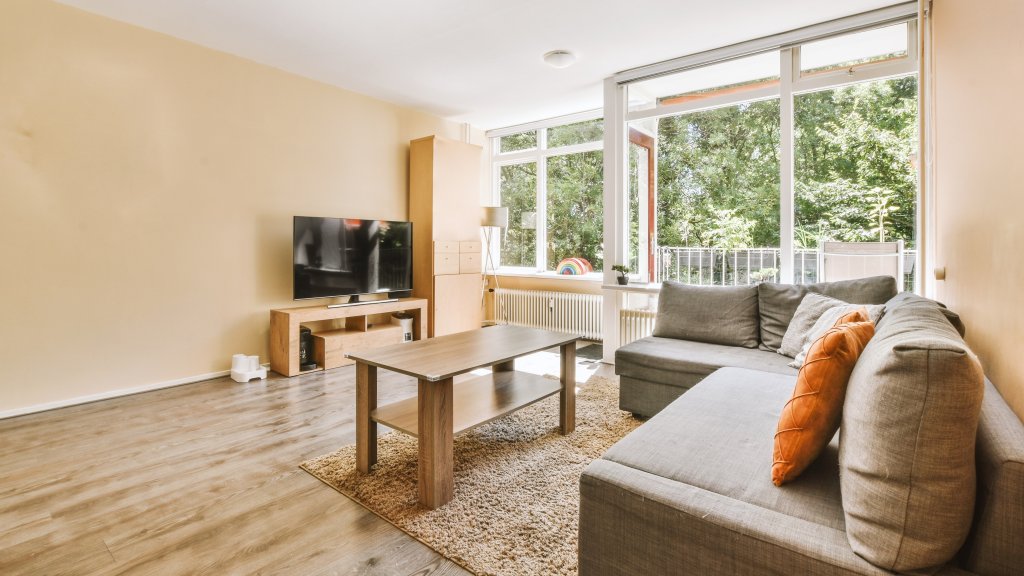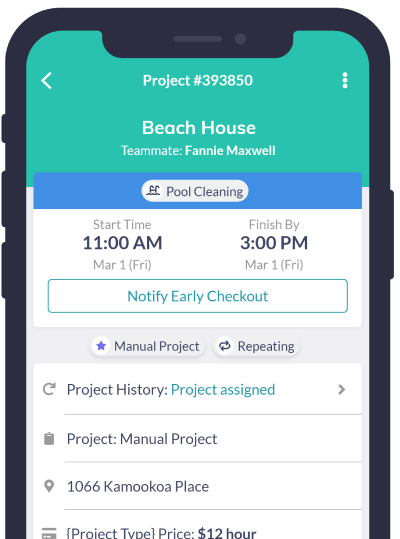How Easy Is It to Get a Short-Term Rental Loan?
Getting approval for short-term vacation rental loans isn’t always easy. In the eyes of lenders, these properties are risky for multiple reasons.
For one, many hosts depend on a steady stream of income from tenants to pay back their loans. If you can’t find tenants to fill your property on a consistent basis, this could affect your ability to make loan payments in a timely manner.
A short-term rental property is often not your primary residence either. From a lender’s perspective, this is a risk because you have other payments to worry about. In the event of financial hardship, your first priority will likely be payments on your primary residence, rather than your new short-term rental or second home.
Finally, there is the added risk of strangers coming and going from your short-term rental property. The potential for property damage and routine maintenance is higher, which may lead to postponed bookings and less income to pay back your loan. Despite these risks, the tips below can help improve your chances of securing a vacation rental loan.

How to Improve Your Chances of Getting a Short-Term Rental Loan
Getting approval for short-term rental loans is no small feat. Hosts need to be creative — and strategic — to prove their credibility to lenders. Here are a few key considerations for prospective hosts looking to get approval on a short-term rental loan and close faster.
Classify Your Property
First things first, it matters how you classify your vacation rental property. Whether you’re investing in a new short-term rental or a property that counts as a second home has huge implications on loan qualification requirements and financing costs.
New Short-Term Rental Property
Let’s start with a property that hasn’t been used as a short-term rental before.
If the property doesn’t have a history of short- or long-term rental income, you may need to finance it based on your personal purchasing power since lenders won’t know what to expect in terms of future cash flows — and your personal finances will provide the only proof of credibility. Third-party vendors like AirDNA can help provide estimates of future cash flows for rentals.
On the other hand, purchasing a property that’s already a short-term rental with at least one year of income history is one of the best ways to secure a short-term rental property loan. From a lender’s perspective, your borrowing risk is lower because rental income and net operating income history are already established. As a result, it can be used to underwrite a new loan.
What’s more, your interest rates will be lower. Interest on properties without short-term rental history is typically at least one point higher than your average commercial property loan.
If you plan to convert a property into a short-term Airbnb rental, you should also consider the incremental investments you’ll need to make before going to the market. This means accounting for repairs, furnishing, and maintenance — both their costs and their quality.
While there aren’t any specific limitations on transitioning from a second home to an investment property, it’s critical that you notify your current lender and get it approved. For example, some lenders require that the second home be used as a vacation home for a defined period of time, or that the owner’s primary residence is within the vicinity.
One-Unit Property Classified as a Second Home
The other option is buying a one-unit property that you intend to live in for part of the year, or a second home. Many hosts apply to finance their property as a second home because they wanted to enjoy the perks of having a vacation home throughout the year.
And these perks exist in the financing process, too. Usually, financing a second home is slightly more flexible — and cheaper.
Most second home mortgages have more favorable terms than short-term rental loans. You may be eligible for tax deductions on mortgage interest. Additionally, the down payment on a second home may be as low as 10% versus 15% to 20% for an investment property, or even 25% for a multi-unit property.
That said, there’s a much higher bar for both personal credit score and proof that the purchaser can afford their mortgage lending payments.
For this reason, it’s important that hosts have a financial plan to cover costs. If you’re considering applying future rental income to mortgage payments when applying for a loan, you’re generally able to add 75% of the expected rental income.
But there is a caveat: lenders may require borrowers to secure a specialized appraisal company to estimate future rental income. Some lenders may also require proof that the location of the second home is within a certain proximity of your primary residence.
Secure Short-Term Financing via an LLC
Maybe you’re looking to grow your portfolio of short-term rental properties but don’t currently have enough income or personal credit to support a conventional loan. In the eyes of lenders, this means your borrowing risk is high.
In this case, one way to secure financing is to partner with a lender that will underwrite the new loan based on existing assets and cash flow tied to an LLC. Short-term rental loans financed via an LLC structure are typically 1% higher than other loans — but that cost comes with its own set of advantages, including:
- The loan is not reported to your personal credit score report
- Projected income is tied to the rental portfolio in the LLC rather than your personal income or cash flow
- From an underwriter’s perspective, the proof of assets helps de-risk underwriting the loan, which may lead to more favorable terms

Be Realistic About Your Budget
Even with your projected rental income, it’s important to be realistic about how much you can afford upfront before the property is ready for tenants.
For example, real estate investment properties often require larger down payments, and interest rates tend to be higher. Interest rates range from half a point higher to a full point above standard rates. Keep in mind that if you can afford to put down a larger down payment, you may qualify for a better interest rate.
Similarly, it’s important to consider your debt-to-income (DTI) ratio, or how much of your monthly income is paid back to your monthly debt. To calculate this ratio, divide your total monthly debt payments by your gross monthly income.
Many lenders look closely at this measure when you invest in a new short-term property or property that classifies as a second home. Some prefer a maximum DTI of 35%, while others are willing to go as high as 43%. These requirements can vary depending on your personal credit score or the size of your down payment.
Another key budget consideration is whether or not your lender requires cash reserves. In many cases, lenders require 6 months’ worth of cash to go into escrow. If you’re looking to expand your portfolio across multiple rental properties, you need to make sure you have enough reserves for each property.
You don’t want to get into a situation where you haven’t budgeted correctly and can’t afford one of your properties. This won’t help secure approval of short-term rental loans either.
Improve Your Debt-to-Income Ratio
As mentioned above, your DTI ratio is an important part of getting approval for a short-term rental property. A high DTI ratio signals to lenders that you may not be able to take on another money loan, while a low DTI ratio suggests you may be able to take on more debt and make payments on time.
Prospective investors can take steps to improve their DTI ratio and become more favorable to lenders in the following ways:
- Minimize revolving debt (across credit card balances and personal loans)
- Reduce any unnecessary recurring expenses that are reported to credit bureaus
- Avoid opening any new credit accounts (this impacts your credit score and inquiries, and having multiple inquiries does not look favorable to lenders)
- Look for opportunities to refinance your existing loans at lower rates
- Consolidate your existing loans

Consider Partnering With a Community Bank or Trusted Advisor
Whether you’re a first-time real estate investor or have a growing portfolio of properties, a little help goes a long way.
Community banks and trustworthy advisors like Azibo offer flexibility, support, and a world of possibilities when it comes to financing a short-term rental property and getting approved for a loan. Community banks and local brokers can be especially helpful for hosts who put down a lower down payment, too.
While large banks can be helpful in navigating the financing process, they may not have the same insights into the market or the same interest in making local investments that a community bank or local broker might.
Typically, brokers have access to a more comprehensive suite of short-term rental loans to meet diverse financial needs. Offering end-to-end support in financing, insurance, and more, they can provide a personalized and creative approach to financing, tailored to your unique budget, debt-to-income ratio, credit score, and more.
Be sure to shop around with both traditional banks and local lenders to learn more about the options available.
Don’t Wait Too Long to Get Pre-Approved
Once you’ve evaluated your budget, shopped around for loan products, and partnered with a trustworthy bank or broker, it’s time to get pre-approved.
While it’s important to have everything you need to begin the financing process, don’t wait too long to get pre-approved. Acting quickly will help you stay ahead of any obstacles that may arise prior to closing.
Once you’re pre-approved, you’ll also have a better understanding of how much you can finance as you start looking for your short-term rental property.
Prepare for the Closing Process
This is the exciting part — when your thoughtful financing plan comes to fruition in the closing process. At this point, you’ll need to choose a real estate attorney or closing agent to navigate the final stages.
You’ll also need to invest in short-term rental property insurance to show proof at closing. A reliable partner like Azibo can help you weigh different coverage options and make a decision that aligns with your unique financial situation.
For example, some hosts may opt for a high-deductible plan to save money on the premium upfront. As a result, they’ll have to pay more out of pocket in the event of property damage down the line. Meanwhile, other hosts might consider a low-deductible plan to improve their coverage — in turn paying a steeper cost for premiums.
In the same vein, you want to make sure your property is “free and clear” of anyone else’s debts or encumbrances. This means double-checking that there are no liens on the property and you are able to purchase it. Once you do so, the title insurance company will provide you with title insurance to protect your investment.
From there, you’re ready for the property appraisal phase. In collaboration with your agent, you will do a thorough examination of the property to determine its value, condition, features, and more. This may also include negotiation with the seller if the appraisal comes in low, for example.
After a final walkthrough of the property and completion of the necessary paperwork, you have secured approval for your short-term rental and closed on the property. Now it’s time to begin preparing for tenants.
Preparation Is Your Partner
While securing a short-term rental property differs on a case-by-case basis, it’s easy to underestimate the financial and time investment needed to prepare your property. The bottom line is that it’s always better to be over-prepared than under-prepared — especially when it comes to financing a short-term rental property or buying a second home.







